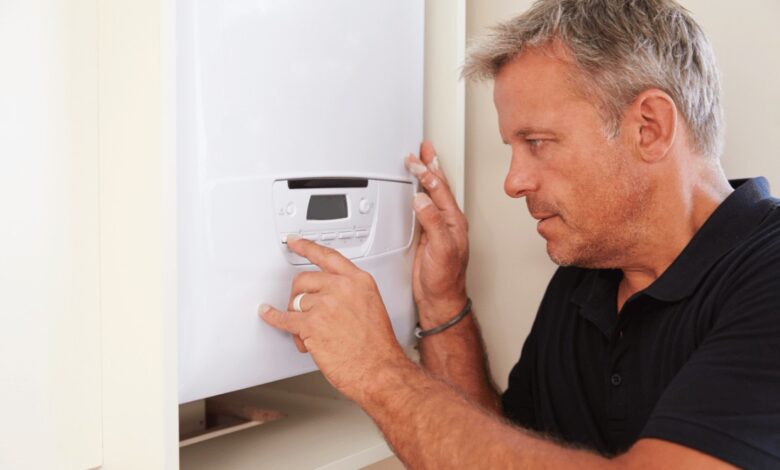What Are Signs of Boiler Failure? Guide for the UK Households

Only by recognising the symptoms of boiler collapse beforehand can you save yourself the hell of unexpected collapses, costly call-outs, and chilly chilly nights.
If you are hearing unusual sounds, high bills, or irregular heat, you should be able to recognise at once what your boiler is telling you. An efficient and safe domestic heating system is one of the most important things you can have and if your current one is outdated or inefficient, you may qualify for support through the government free boiler scheme, which helps households upgrade to more energy-efficient boilers at little to no cost.
13 Most Common Boiler Failure Signs
If something or someone is not working for you, it may not tell you that in words but, fine, there will always be signs that tell it loud and clear. Let us take you through interpreting the signs and act before it completely fails.
- Strange Noises From Your Boiler
Strange noises will probably be the first sign that there is something wrong with your heating. If your boiler starts banging, whistling, gurgling, or humming, you should not overlook these sounds at all.
The most common fault a boiler experiences is kettling, which will sound a bit like a kettle boiling. It is brought about by limescale or sludge accumulating on the heat exchanger, which narrows down the water flow and overheats the water.
Gurgling sounds are typically the result of air in the system or low water pressure. Banging could be a result of heating pipe expansion and contraction or more severe issues like effects of water hammer.
- No Heat or Hot Water
If your boiler is not supplying heat or hot water, then it indicates that something failed. This type of issue may be brought about by several causes, such as malfunctioning thermostat, faulty diverter valve, airlocks in the system, or low boiler pressure.
Start by checking your boiler pressure gauge. Should the gauge be less than 1 bar, you will probably have to repressurise your system. You will also want to check that your thermostat is functioning properly and that your timer has not been knocked out of set by error, perhaps through a loss of power.
- Boiler Leaks and Drips
Leaks might signify a number of issues, such as corroded tanks or pipes, a leaky pressure relief valve, seals or gaskets that have deteriorated, or poor installation.
Minor leaks can result in huge damage in the long term, along with electrical components and internal damage. In case you find any water lying near your boiler or notice signs of dampness on surrounding walls, turn off the boiler at once and call a Gas Safe registered engineer.
- Low Boiler Pressure
Low boiler pressure is the most common boiler issue, especially for combi boilers. Your gauge reading must be between 1 to 1.5 bar. If it is lower than 1 bar, your boiler may shut off automatically, radiators at the ends of the system farthest from the boiler will no longer heat, or banging noises can be heard in the central heating.
Although you can usually repressurise your boiler yourself through the filling loop, frequent loss of pressure suggests there is a leak or faulty item which needs to be traced by a qualified person.
- Strange Odors from Your Boiler
The most critical is a sulphurous or rotten egg odor, as natural gas companies add a chemical substance called mercaptan to assist in identifying gas leaks.
If you can smell gas, switch off your gas supply at the emergency control valve, ventilate by opening windows and doors, do not use electric appliances, evacuate the building, and contact the National Gas Emergency Service on 0800 111 999. Do not try to find the leak yourself.
- Yellow or Orange Pilot Light
Your pilot light should have an unbroken blue color of flame. Blue flame indicates perfect combustion and efficient safe burning. When the flame turns yellow or orange, this is a warning that should never be ignored.
Yellow or orange pilot light indicates your boiler is not getting the right mix of gas-to-air. This can lead to the production of dangerous carbon monoxide gas.
If your pilot light is coloured, switch off your boiler straight away and contact a Gas Safe registered engineer. Ensure you do have an operative carbon monoxide detector fitted close to your boiler.
- Normal Breakdowns and Repairs
If you experience that you regularly have engineers coming to your boiler to repair it, in the majority of cases, it is more cost-effective to employ the replacement option rather than repairing it again and again.
The lifespan of a boiler is usually between 10 and 15 years. By this time, components of your boiler will naturally deteriorate at higher rates, and the parts may be more difficult to obtain. If your boiler is over 15 years old and always needs to be repaired, replacement would generally be the more cost-effective solution in the long run.
- Increasing Energy Bills
The older a boiler is, the more energy it will use to generate a given amount of heat, and the higher your bills will be. Older boilers can have as low as 60% efficiency, with 40% of the energy they consume being wasted.
New high-efficiency boilers are approximately 94% efficient, with up to 30% savings a year on heating costs. If you see your bills increasing with no variation in usage rates, it is probably time to get your boiler inspected or replaced.
- Radiators Not Heating Properly
Intermittent warmth in your building, where there are cold radiators and ones that are heating, indicates that something is wrong with your heating. This is not always that the boiler is breaking down, but there are problems that need to be sorted out.
Cold spots on a radiator or radiators that warm only at the top tend to be signs of air within the system. Bleeding the radiators will expel the trapped air in the system and have everything warming normally once more. Bleeding not operating could show sludge build-up preventing water circulation, and one should need a professional power flush.
- Frozen Condensate Pipe
In winter, a frozen condensate pipe is a typical problem that will put your boiler out of action. Condensing boilers send acidic water away from the boiler through a tube to your outside drain. At below-freezing temperatures, the pipe clogs and freezes, which activates safety features that will turn off your boiler.
You can usually defrost your pipe yourself by using warm (not scalding) water and a hot water bottle to the affected part. Re-set your boiler after defrosting, as per the manufacturer’s guidelines. To avoid freezing, have your condensate pipe properly lagged with waterproof lagging.
- Visible Corrosion and Rust
Corrosion takes place when iron within the boiler system comes into contact with oxygen and water to cause a chemical reaction that leads to the formation of rust and corrosion of metal parts.
Corrosion generally hastens with dissolved oxygen in water, unbalanced pH, or poor water quality. Water maintenance and treatment can prevent corrosion from occurring but, once corrosion has progressed at advanced levels, particularly within the boiler tank itself, replacement generally becomes unavoidable.
- Boiler Keeps Switching Off
If your boiler randomly shuts down, there are possibly a number of reasons for the same. The most probable causes are low water pressure, blocked condensate pipe (during winter, in particular), malfunctioning thermostat or sensors, or pump failure that inhibits efficient water circulation.
Start by running a check on the pressure gauge and thermostat levels. If these are in order but the problem doesn’t resolve, the issue is internal to the system and will require professional evaluation. Newer boilers contain safety features that will shut them off when they detect faults to prevent further system damage.
- Boiler Age and Efficiency Decline
Age would probably be the simplest indicator that your boiler is reaching middle age and on the path to breaking down. The majority of boilers will continue for 10 to 15 years if properly maintained. Once reached, even with proper servicing, efficiency will inevitably decline because parts inevitably degrade.
New boilers are significantly more efficient and cleaner compared to old designs. If the boiler is approaching or has surpassed the 15-year point, replacing it before it totally fails may be a wise decision, especially in the winter when installers are busiest and you need the heat the most.
Final Thoughts
Yes, the boiler replacement grant does exist in 2025. Boiler Upgrade Scheme and ECO4 assist homes in the United Kingdom. Renters and homes can be assisted. The ECO4 Scheme is one of the key government initiatives helping households access energy-efficient heating solutions at little to no cost.
Look now, prior to the funding changing or coming to an end. Feel free to talk to an authorized installer or your energy provider about it; they will guide you through the process.
A greener heating system can reduce expenditure, reduce emissions, and enhance well-being. With government support which does not look set to cease, the timing is perfect to act.



